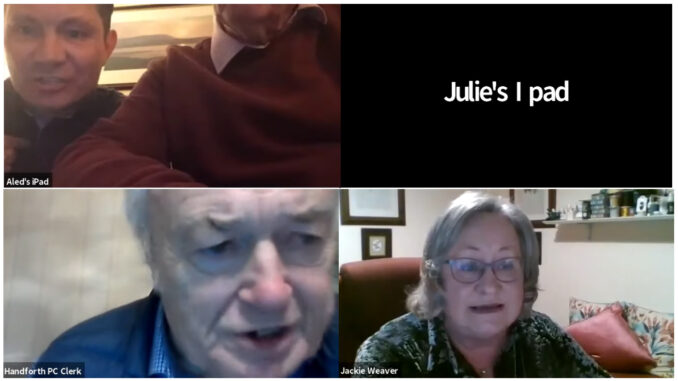Luke Bradbury

As a student on the MSc Public Management course at INLOGOV and having worked part-time in care for a number of years, I felt my final dissertation project was an opportunity to investigate the impact of COVID-19 on adult social care and the implications of government intervention. The works of organisations such as SCIE (Social Care Institute for Excellence) have already shown that inaccurate government guidance – combined with years of underfunding – resulted in the sector being ill-prepared for dealing with a pandemic and that care policy and practices had to rapidly adapt to unforeseen circumstances with limited support.
This case study aimed to explore this in the context of two care homes in West England during the early months of the pandemic. It was also interested in the role of collaborative management between care homes and their surrounding communities including local authorities, charities, businesses etc. ‘Collaboration’, in this context, took some influence from Helen Sullivan and Chris Skelcher’s conceptualisation of a collaborative agenda governing the (often mutually) beneficial cooperation between different public bodies and community agencies. One might consider how care homes may have banded together with their own local communities to ensure they still had the means to provide quality care in the face of COVID-19. Indeed, recent research by Fiona Marshall et al. has shown that, where government support was scarce, many care homes formed resource networks with external stakeholders such as local businesses, dentists, veterinaries, and domiciliary care agencies to source vital materials including personal protective equipment (PPE), electronics, toiletries, bedding and even food.
This study used semi-structured interviews and recruited five participants via a combination of snowball and non-probability purposive sampling. This included two deputy care home managers representing two different care homes in West England as well as a carer, a local parish councillor, and a co-owner of a local chemicals firm. The latter two participants were recruited as active members of the local community for one of the two participating care homes (or ‘external stakeholders’). Thematic analysis and grounded theory-based coding was then used to interpret the data.
The analysis firstly uncovered a strong dissatisfaction with the central government response to COVID-19 amongst all participants. Care staff spoke about how the implementation of the Coronavirus Act forced them to take on extra patients from hospital without an effective COVID-19 testing system in place and that inconsistencies between government guidance and company policy led to confusion amongst managers. Practices were forced to adapt; for example, adhering to stricter infection control measures and taking on extra care duties such as virtual GP consultations. External stakeholders also spoke about how these circumstances encouraged some level of collaboration within the community and a desire to assist local care organisations; for instance, a parish council was enabled to collaborate with the local chemicals firm and local school to source PPE such as goggles and hand sanitizer which could then be distributed to care providers.
Despite this opportunity to establish a resource network, collaboration between the two care homes and their surrounding communities was not evidenced as Marshall et al. had found previously. This was attributed to two main reasons. Firstly, resource dependency was less prevalent because effective internal management within both care homes meant they already had a sufficient supply of PPE. As one of the deputy managers recalled, the manager for her home made the decision to stock up on PPE and to lockdown early, therefore minimising the spread of the virus. The second reason was down to external circumstances that aided both care homes. Since both operate within rural areas of West England, they occupy less densely populated regions than care homes within inner city locations and therefore surrounding transmission rates remained relatively low. The implication is that locality largely eliminated the need to establish support networks with external stakeholders because they were not experiencing the same level of devastation seen in many other care homes. This was corroborated by staff who felt ‘fortunate’ compared to what they were seeing on the news.
These findings indicate the importance of effective management but also the extent to which contextual circumstances may or may not have necessitated collaborative networking between care homes and their surrounding communities during the early months of the pandemic. Whilst collaboration was less necessary here, the background coordination of parish council and local actors to produce a ‘safety net’ of resources did highlight the potential of localised collaboration and intervention in times of crisis. Perhaps, had such coordinated localised governance been enabled within the surrounding communities of less fortunate care homes, they may have been spared some of the devastations of the pandemic. Regardless, there is certainly a strong call for greater support towards the care sector for government and policymakers to consider – particularly in terms of clearer guidance, increased funding, and enabling localised governance to support care organisations.
Luke Bradbury graduated from the MSc Public Management in September 2021.
